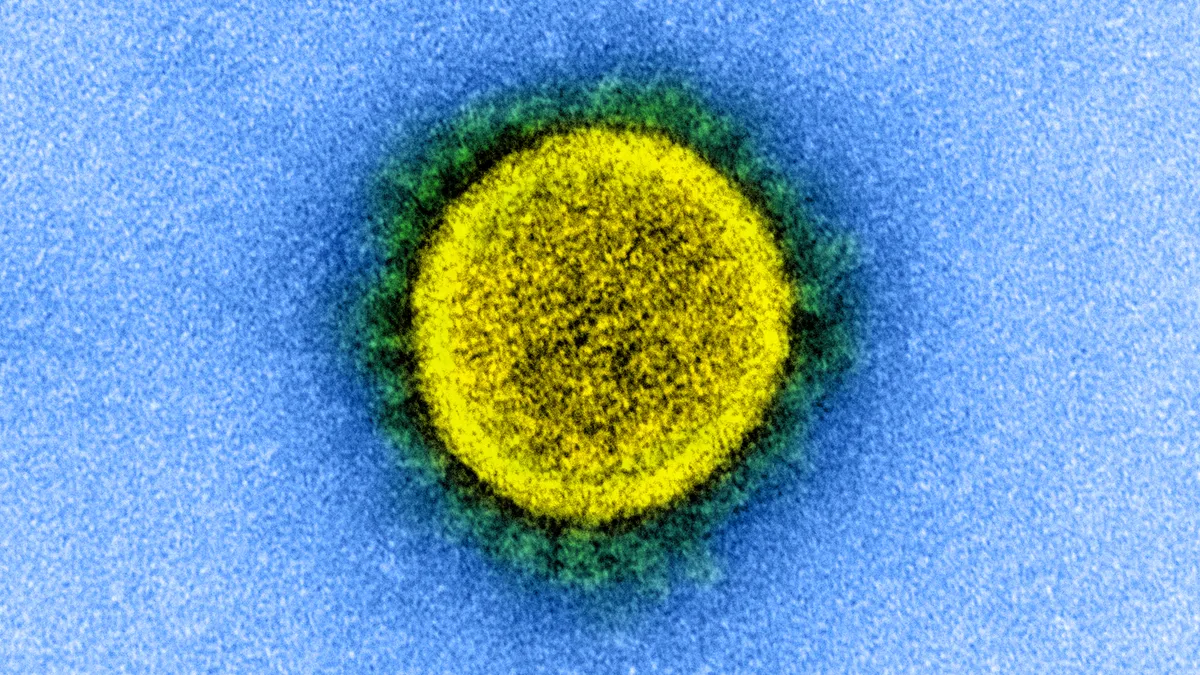Dive Brief:
- Hologic and Thermo Fisher Scientific reported quarterly earnings benefiting from strong demand for their respective SARS-CoV-2 assays. Hologic's second-quarter revenue increased 103.4% to $1.54 billion with molecular diagnostics revenue jumping 390.6%, while Thermo Fisher's first-quarter revenue grew 59% to $9.91 billion with diagnostics and healthcare delivering approximately 150% growth.
- While the outlook for diagnostics are poised to sustain some pandemic-driven growth, executives from both companies have provided cautious expectations for coronavirus testing for the rest of 2021.
- Hologic CFO Karleen Oberton told investors late Wednesday that while the company anticipates that fiscal 2021 will be an "excellent year" overall, she said COVID-19 testing revenue remains "highly unpredictable." Thermo Fisher CEO Marc Casper similarly told investors on Thursday he anticipates "less testing in Q2" and in the second half amid vaccinations.
Dive Insight:
The two lateral flow assay companies have ridden the wave of strong COVID-19 testing demand in the molecular diagnostics category over the past year. However, both Hologic and Thermo Fisher executives in investor calls highlighted the uncertainty of the coronavirus test market.
While molecular COVID-19 testing volumes remain high, Hologic CEO Stephen MacMillan told investors late Wednesday demand has "declined significantly" since January based on a better-than-expected vaccine rollout.
"In this context, our U.S. sales of COVID tests also declined significantly in March and further in April," MacMillan said, adding that while molecular SARS-CoV-2 testing demand will likely decline further as vaccines roll out he sees the test category remaining important into fiscal 2022 and beyond.
William Blair analysts in a Wednesday note said Hologic's COVID-19 testing revenue fell short of their model at $680 million, versus their $750 million forecast.
"With testing demand falling off faster than many companies in the space ... and with screening use-cases not yet clear, the management team needed to reset the bar for investors," William Blair analysts wrote.
Hologic CFO Oberton forecast "strong financial results" in its fiscal third quarter with "continued strength and recovery" in the base business and partially offset by a "potentially conservative but still significant outlook" for coronavirus-related test revenue. Hologic's guidance for COVID-19 testing revenue is now in the $200 million to $250 million range, about a 200% sequential decline.
Looking beyond the COVID-19 pandemic, Hologic and Thermo Fisher both expect to reap the benefits of their growing installed bases of PCR instruments.
MacMillan said Hologic shipped 717 Panther instruments to customers over the past year, including about 190 in the second quarter, and that the company's global installed base now stands at roughly 2,600 instruments, which is approximately 40% higher than when the pandemic began.
The install base gives Hologic a platform for future growth beyond coronavirus, according to MacMillan, who added that the company is "seeing this play out with record levels of new non-COVID business on these Panthers."
Acquisitions are also an important part of the post-pandemic strategies of both companies.
Hologic earlier this month announced it struck a struck a deal to buy near-patient, acute care diagnostic company Mobidiag for $795 million, giving the company control of two automated PCR instruments used in the diagnosis of gastrointestinal and respiratory infections as well as management of antimicrobial resistance.
The Mobidiag deal continued Hologic's M&A spree so far in 2021, adding to the smaller Somatex and Biotheranostics buys in January.
Hologic in February closed its $232 million acquisition of Biotheranostics, which makes molecular tests for breast and metastatic cancers. MacMillan on Wednesday said the deal will enable Hologic to expand into the adjacent growth market of oncology.
"This business is off to a very strong start, based mainly on the inclusion of the Breast Cancer Index test in NCCN guidelines to predict the benefit of extended treatment with endocrine therapies," added MacMillan.
While recent M&A should help Hologic going forward, Evercore ISI analysts in a Wednesday note said they "will have to wait for deals to annualize before assessing their impact on [the] topline."
Thermo Fisher in January announced it will acquire privately-held molecular diagnostic maker Mesa Biotech for $450 million, adding Mesa's PCR-based rapid point-of-care test platform for SARS-CoV-2, Influenza A and B, RSV and Strep A to its portfolio of tests.
"One of the things that the pandemic drove was testing happening in totally different ways and locations [such as point-of-care]," CEO Casper said.
Caspar added that Thermo Fisher expects to generate $200 million this year from the Mesa Biotech acquisition.
However, Thermo Fisher's plans to buy PPD for $17.4 billion, announced earlier this month, is a much bigger investment as it looks to bolster its clinical research service offerings to pharmaceutical and biotech companies. Casper on Thursday said pharma and biotech customers are the fastest growing end-market for Thermo Fisher.












